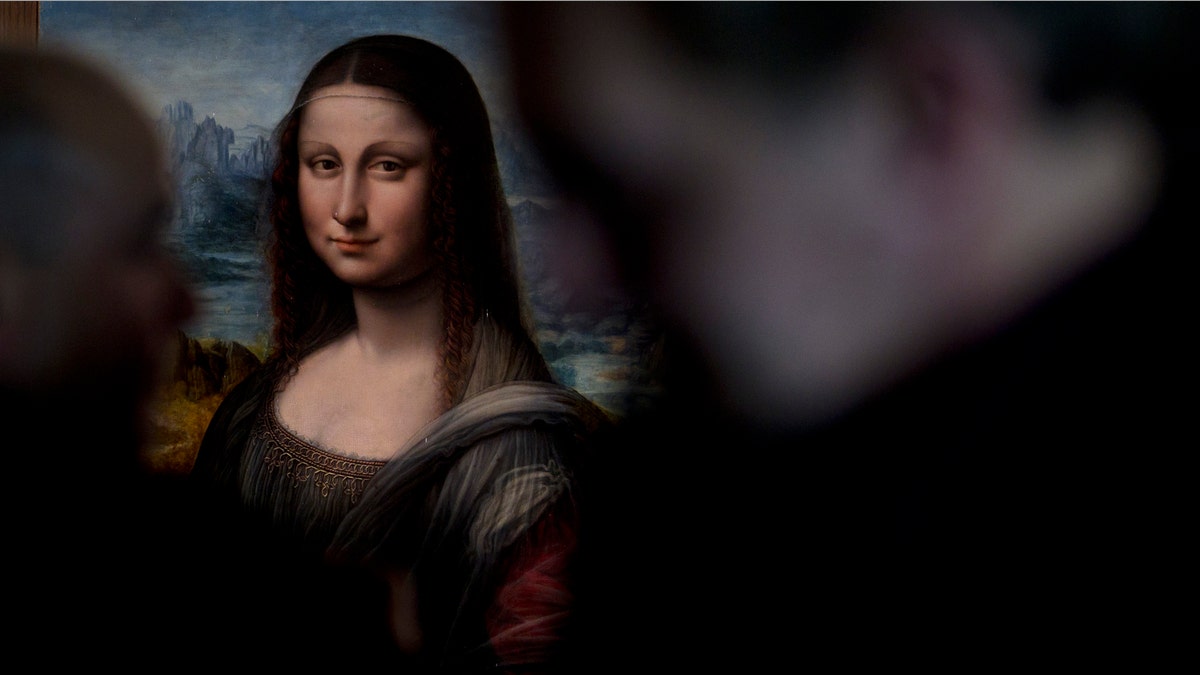
File photo: A copy of Leonardo da Vinci's Mona Lisa that was painted at the same time as the original in the same studio is displayed at the Prado Museum in Madrid Wednesday Feb. 1, 2012. (AP Photo/Paul White) (AP2012)
Officials at Spain's Prado Museum unveiled a copy of Leonardo da Vinci's famed "Mona Lisa" painting that was almost certainly painted hand-in-hand with the Italian polymath by one of his apprentices.
The stunning find of what the Prado now says is probably the earliest known copy of La Gioconda will give art lovers and experts an idea of what the Mona Lisa looked like back in the 16th century, said Gabriele Finaldi, the museum's deputy director collections.
"It is as if we were in the same studio, standing at the next easel," he told reporters.
The copy has been part of the Prado collection for years and displayed occasionally but no one paid much attention to it because around the woman in the Mona Lisa was a stark black background, not the pretty landscape seen in the original.
Two years ago, to get the copy ready for a da Vinci exhibit later this year in Paris, where the original hangs in the Louvre, tests were done and this gave restorers a hint that something lie under the black coat, which was added in the 18th century for reasons not fully understood.
When the black covering was removed, a Tuscan landscape very similar to the one in the original emerged.
And X-ray tests which allow experts to peek under a painting's surface to see how it developed as it was composed showed that changes made in the copy were similar to changes made to the original as it evolved.
Varnish has also been removed from the Mona Lisa's face, making it look brighter and younger than the face coated with cracked, darkish varnish at the Paris museum.
Spain's Running of the Bulls: Run for Your Life!
"You can imagine that this is what the Mona Lisa looked like back in the 16th century," Finaldi said.
Miguel Falomir, the Prado's director for Italian painting, said the copy gives art lovers and experts a chance "to admire the Mona Lisa with totally different eyes."
He and Finaldi said the museum's best guess is that the copy was done by a da Vinci apprentice named Francesco Melzi, because of the style observed in it.
Besides the black background, one other difference from the original is the woman in the copy has eyebrows and the Mona Lisa in the real masterpiece does not.
There are dozens of the surviving replicas of the masterpiece from the 16th and 17th centuries.
The Louvre supports the Prado's new evaluation of the painting, Finaldi said.
The Prado plans to put it on display later this month before it travels to France for the da Vinci show.
Based on reporting by the Associated Press.
Follow us on twitter.com/foxnewslatino
Like us at facebook.com/foxnewslatino








































